
Buddha’s Birthday Celebration
By Chang Jie
05/03/2009
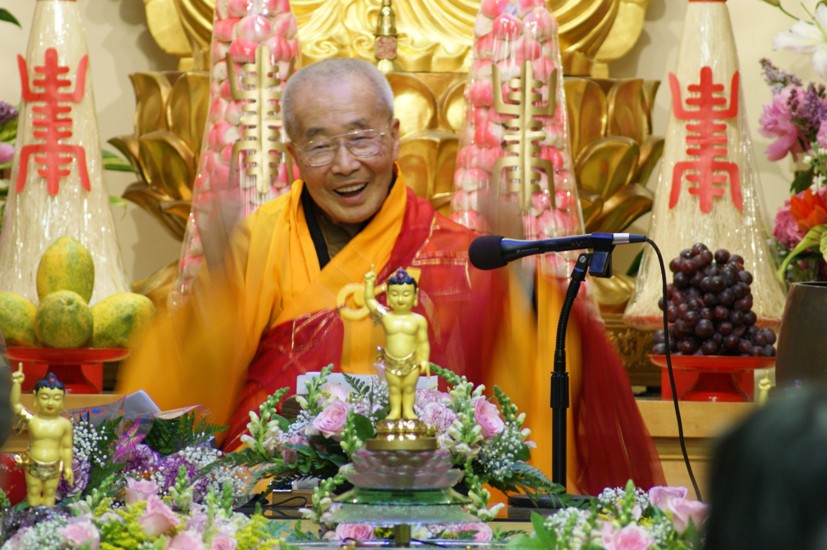
On Sunday, May 3, 2009, the Most Venerable Master Ren Jun gave a talk at CMC to commemorate the Buddha's
Birthday. Before the talk, ten children greeted the Most Venerable Master with ceremonial bows and flowers.
The Most Venerable Master presented the following poem:
Greatly Respected Shakyamuni – perfect and pure in all aspects,
Universally called a Great Hero throughout the world.
Having thoroughly penetrated the self, he taught us No Self,
Teaching only the truth and advising us to rely on nothing but the truth.
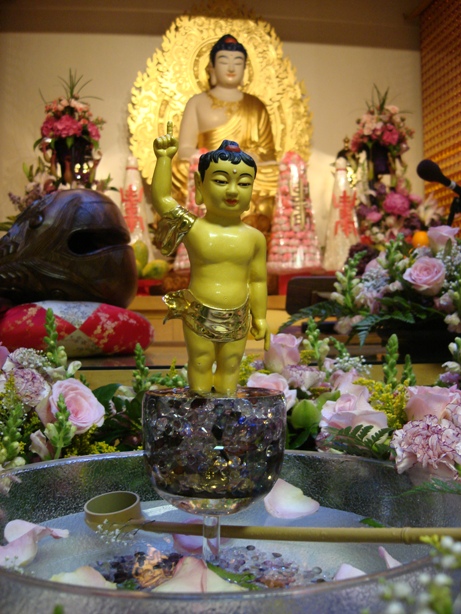
He taught us how to diligently press forward -
To persist in the correct Dharma so that we can emerge from the deluded path;
In renunciation, the essential path consists of three practices in which human beings surpass the devas:
Mindfulness, pure conduct, and great courage.
Life as a human being is precious and hard to come by;
Since we are born as a human being, we should realize how fortunate we are!
Practicing the Dharma with great effort and sincerity, expounding the Dharma diligently,
The light of the Dharma will always shine and guide us and keep us in clarity and peace.
With great clarity and deep tranquility, we abide in peaceful silence,
Seeing all Buddhas and emulating the virtue of the buddhas.
Thoroughly emulating the Buddha’s virtue, one is filled with wisdom and compassion.
Enduring hardship, letting go of worldly pleasure, one fulfills the Four Great Vows.
The Buddha’s body has long been cleansed of impurities.
By means of this bathing ceremony, the practice of purifying the six sense faculties is transmitted.
Purifying the six sense faculties, practicing the Six Paramitas;
Practicing the six Paramitas universally, delivering sentient beings in the six realms.
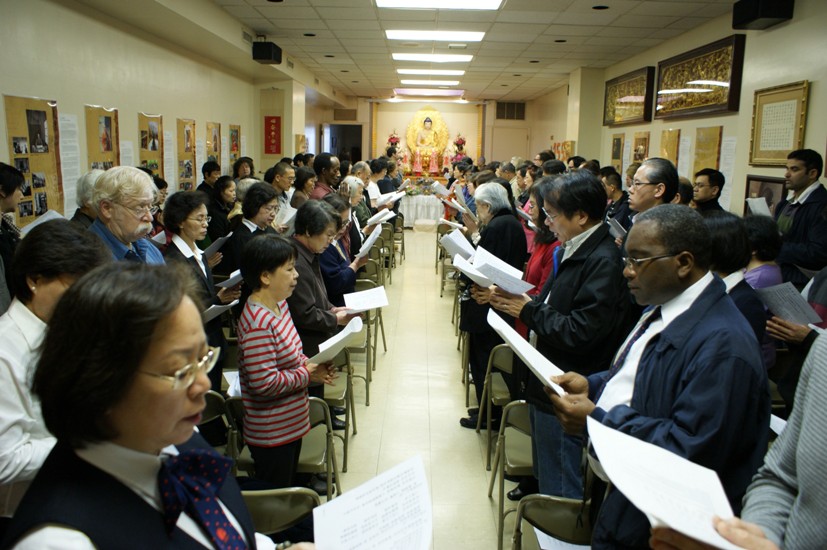
The following is an explanation of the poem:
Verse 1:
While there are many heroes in this world, Shakyamuni Buddha surpasses them all by cutting off all
vexations and using wisdom and compassion to deliver innumerable sentient beings.
Verse 2:
The sense of self is the root of all suffering. Shakyamuni Buddha completely penetrated this sense
of self and taught this idea of “no self”. Conflicts between groups and countries which lead to calamities
originate from this attachment to a sense of self.
Verse 3:
This is an exhortation to be diligent and understand the true dharma. By practicing hard, we can attain Buddhahood.
Verse 4:
We should aspire to be reborn in the human world so that we may be able to listen to the dharma. Humans surpass other
beings in wisdom, pure conduct, and determination.
Verse 5:
We should realize how fortunate we are to be human, which is precious and hard to come by. Humans have the six sense
faculties, to understand the profound truth. We should develop our bodies and minds, study the Buddhadharma, so that we
may be born as humans again.
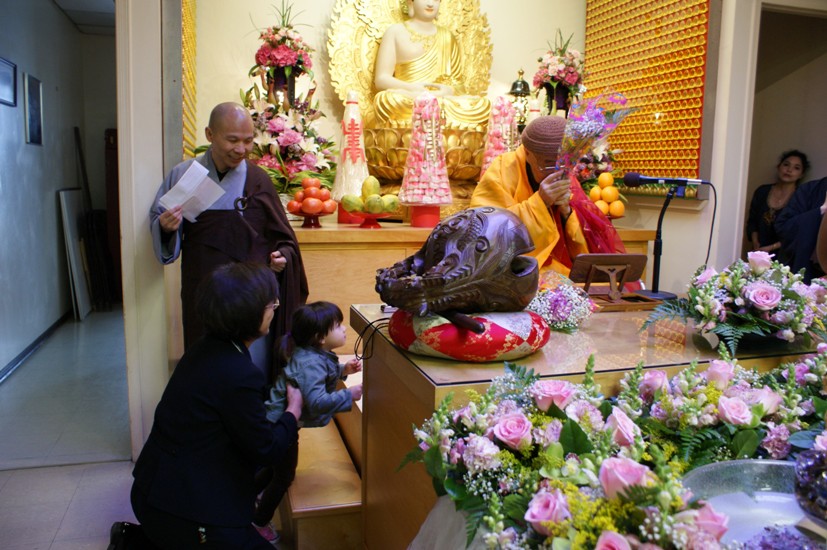
Verse 6:
The Buddhadharma is like light and brightness. When we learn Buddhadharma, we attain brightness.
Verse 7:
When a person truly understands impermanence, that person will not be greedy. The mind will be calm. "Silence"
means to be without vexations. To understand impermanence means to live in deep tranquility and clarity.
Verse 8:
Wisdom is the ability to see clearly and not be attracted to worldly phenomena that leads to negative karma.
We should see all sentient beings as our parents and deliver them as we would our parents.
Verse 9 & 10:
The body is already clean and without defilement. This auspicious moment is to remind ourselves that we should
purify the six faculties by upholding the six paramitas.
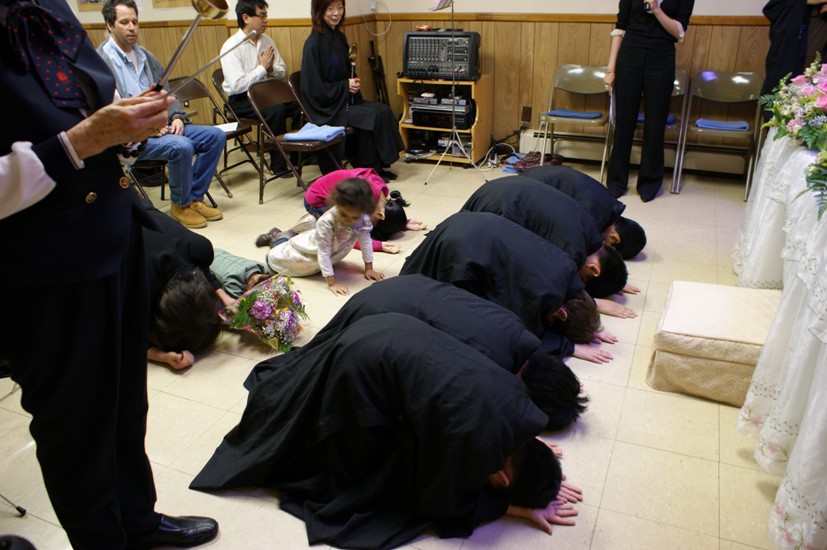
Most Venerable Master admonished the audience to do our best to follow the dharma and put it into action. Then we can truly save ourselves and others.
In the afternoon, there was a screening of Little Buddha followed by a discussion moderated by Lindley Hanlon. The movie celebrated
the life of the Buddha and depicted Buddhism within the Tibetan tradition--.
|